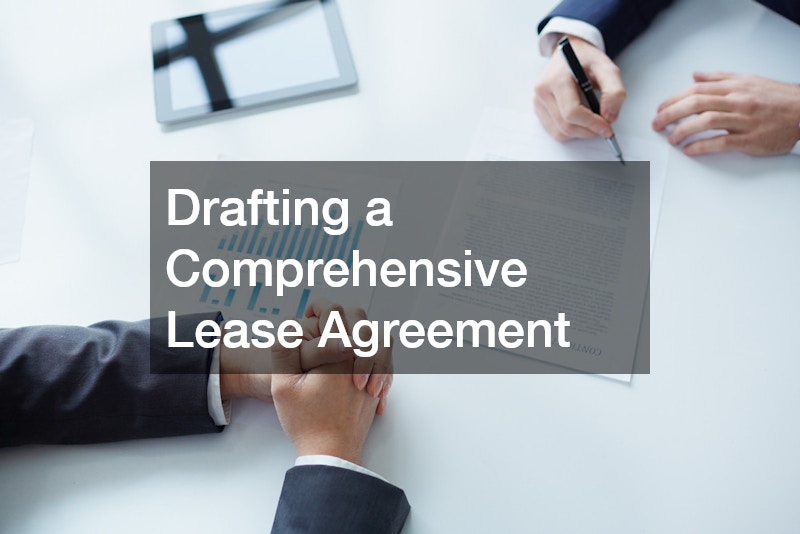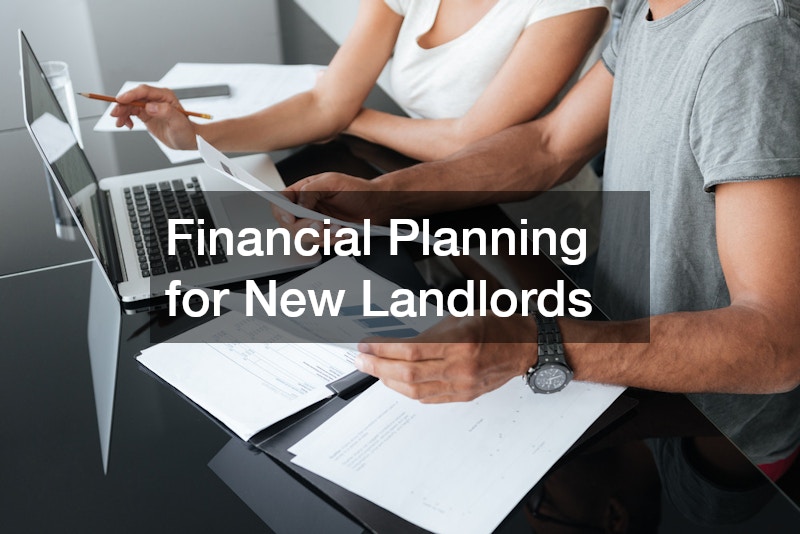Becoming a landlord for the first time can be both exciting and daunting. This article aims to provide comprehensive insights into the responsibilities and considerations newly minted landlords must address to ensure a successful venture into property renting. With a myriad of tasks ranging from legal responsibilities to tenant management, understanding the ins and outs of property management is essential. Whether you’re managing a luxury apartment or a modest home, knowing the ropes will empower you to make informed decisions and navigate challenges effectively. Let’s delve into the critical factors you need to consider as a new landlord.
1. Understanding Your Legal Responsibilities
1.1. Landlord-tenant Laws
As a new landlord, familiarizing yourself with landlord-tenant laws is crucial. These laws vary by state and can dictate everything from security deposits to eviction procedures. Understanding your rights and responsibilities helps in mitigating disputes. Neglecting these laws can lead to legal issues that may result in costly litigation. Regularly updating your knowledge about changes in these laws is essential. Participating in landlord associations or attending workshops can provide valuable insights. Staying compliant ensures that your luxury apartment or any rental property is legally sound and reduces the risk of disputes with tenants.
1.2. Property Safety and Maintenance Regulations
Safety and maintenance regulations are paramount for any landlord. Conducting an electrical safety inspection before renting out your property is not just advisable; it’s often required by law. Ensuring that your property meets health and safety standards protects both you and your tenants. Regulations also include mandates around plumbing services and the services provided by HVAC companies to ensure that they are functional and safe. Being proactive about these requirements helps you avoid fines and, more importantly, enhances tenant satisfaction. Regular inspections can also uncover potential issues like water damage, or an arborist for dangerous limbs near the structure, allowing for timely restoration.
1.3. Fair Housing Requirements
Understanding fair housing requirements is vital for fostering an inclusive environment in your rental property. These laws prohibit discrimination based on race, color, religion, sex, familial status, disability, and national origin. As a new landlord, it’s your duty to provide equal opportunity in housing. Implementing unbiased screening processes and ensuring all marketing materials are compliant can protect you from legal repercussions. Familiarizing yourself with these laws also helps create a respectful relationship with tenants. Ensuring transparency in your rental process enhances your reputation and can lead to longer-term tenancies.

2. Setting the Right Rent Price
2.1. Evaluating Market Trends
Setting the right rent price is crucial for attracting tenants while ensuring profitability. Start by evaluating market trends in your area, considering factors like demand and rental rates for similar properties. Conduct thorough research to find comparable properties, especially luxury apartments, that can provide insights into pricing strategies. Utilizing online platforms for market analysis can also be beneficial. Adjust your rent based on amenities offered, location, and current market conditions. A well-researched price point not only attracts tenants but can also minimize vacancy periods, ensuring a steady income flow.
2.2. Calculating Operational Costs
Once you have an idea of the market trends, it’s time to calculate your operational costs. Consider all expenses involved in property management, including maintenance, property taxes, insurance, and unexpected repairs. Regular expenses might include hiring a landscaping contractor or scheduling an HVAC company for seasonal maintenance. Be sure to factor in costs for water damage restoration and mold removal, as these can arise unexpectedly. By thoroughly calculating these costs, you can set a rent price that covers your expenses and contributes to profitability.
2.3. Offering Competitive Incentives
To attract tenants in a competitive market, consider offering incentives that set your property apart. This could include discounted rent for the first month, waiving application fees, or providing amenities such as stamped concrete services for outdoor spaces. Offering flexible lease terms or including utilities in the rent can also make your luxury apartment more appealing. Be strategic about the incentives you offer, ensuring they enhance your property’s attractiveness while still allowing you to maintain profitability. The right balance can significantly reduce vacancy rates and lead to happier tenants.
3. Marketing Your Rental Property
3.1. Creating Effective Listings
Creating effective listings is crucial in attracting potential tenants. Highlight the unique features of your property, such as spacious layouts or updated appliances, and be sure to mention any recent improvements like a new plumbing service or landscaping enhancements. High-quality photographs are essential; consider hiring a professional photographer to showcase your luxury apartment in the best light. Be specific in your descriptions to target the right demographic, whether young professionals or families. A well-crafted listing not only captures attention but also sets the tone for your expectations as a landlord.
3.2. Utilizing Online Platforms
In today’s digital age, utilizing online platforms for marketing is indispensable. Websites like Zillow, Craigslist, and social media can reach a vast audience. Regularly updating your listings and engaging with inquiries promptly can significantly impact tenant interest. Consider creating a dedicated website for your rental properties, where you can provide detailed information and virtual tours. Online marketing allows for greater flexibility and reach, essential for filling vacancies quickly. The more visibility your property has, the higher the chances of attracting quality tenants.
4. Screening Potential Tenants
4.1. Background Checks
Screening potential tenants is one of the most critical steps in the leasing process. Conducting thorough background checks can reveal important information about a tenant’s rental history and any potential red flags. Use reputable screening services to obtain criminal history and eviction records. This process helps protect your investment and provides peace of mind. Remember, it’s essential to comply with fair housing laws during this process to avoid discrimination claims. The more diligent you are in screening, the more likely you are to find reliable tenants.
4.2. Credit and Income Verification
Credit and income verification are also vital components of tenant screening. Requesting recent pay stubs or tax documents helps confirm that applicants can afford the rent. A healthy credit score indicates financial responsibility, reducing the likelihood of late payments. Be transparent about your criteria, and ensure that all applicants are treated equally. This not only fosters goodwill but also reinforces your commitment to fair housing practices. A well-vetted tenant is less likely to cause future issues, making your landlord experience much smoother.

5. Drafting a Comprehensive Lease Agreement
5.1. Essential Clauses to Include
Drafting a comprehensive lease agreement is crucial for setting clear expectations. Essential clauses should cover rent amount, due dates, and late fees, ensuring that tenants understand their financial responsibilities. Include maintenance obligations and procedures for reporting issues like plumbing problems or requests for mold removal. A well-defined lease protects both parties and serves as a reference point for future disputes. Ensure that your lease complies with local laws, making it enforceable and safeguarding your interests as a landlord.
5.2. Customizing Terms to Your Property
Customization of lease terms based on your property is also important. If you have specific policies regarding noise levels or pet ownership, these should be clearly outlined in the lease. Tailoring the agreement to your luxury apartment can help prevent misunderstandings and establish clear guidelines for tenant behavior. Discussing these terms during the tenant screening process allows for transparency and can deter unsuitable applicants. Customizing your lease to reflect the unique aspects of your property enhances its effectiveness as a management tool.
6. Managing Property Maintenance
6.1. Scheduling Regular Inspections
Regular property maintenance is key to keeping your rental in excellent condition. Schedule routine inspections to identify potential issues before they escalate, such as signs of water damage or HVAC problems. Documenting these inspections helps track maintenance needs over time and provides a record for future reference. Partnering with reputable service providers, like plumbing services or landscaping contractors, ensures that repairs are handled efficiently. Proactive maintenance not only protects your investment but also keeps tenants happy and more likely to renew their leases.
6.2. Emergency Repair Protocols
Establishing emergency repair protocols is essential for effective property management. Tenants should have a clear understanding of who to contact and how to report urgent issues. For example, if there’s a plumbing emergency or an HVAC breakdown, prompt action can prevent further damage and ensure tenant comfort. Create a list of reliable contractors, including emergency plumbing services and water damage restoration specialists, to address urgent repairs quickly. Efficient response to emergencies fosters tenant satisfaction and strengthens your reputation as a responsible landlord.

7. Financial Planning for New Landlords
7.1. Setting a Budget for Expenses
Effective financial planning starts with setting a clear budget for your rental property expenses. Consider all potential costs, including property taxes, insurance, and maintenance. Setting aside funds for unexpected repairs is crucial, as costs can arise at any time. Regularly reviewing your budget helps identify areas for improvement and allows you to adapt as necessary. Maintaining a solid financial plan enables you to cover operational costs and allocate resources for future property investments, ensuring sustainability in your rental business.
7.2. Managing Rental Income
Managing rental income efficiently is essential for long-term success. Use accounting software or spreadsheets to track rent payments, expenses, and profits. This can help you visualize your cash flow and prepare for tax season. Regularly reviewing financial reports allows you to spot trends and make informed decisions about rent increases or improvements to your property. Keeping accurate records simplifies the tax process and ensures that you’re prepared for any audits. A proactive approach to income management sets the stage for a thriving rental business.
8. Navigating Landlord Insurance Options
8.1. Types of Coverage Available
Landlord insurance is crucial for protecting your investment. Various coverage options are available, including property damage, liability coverage, and loss of rental income. Understanding the differences between homeowners’ insurance and landlord insurance is essential; the latter is specifically designed to cover rental properties. Evaluate your specific needs based on the size and type of your luxury apartment to determine the best policy. Adequate insurance protects you against unforeseen events, allowing you to focus on managing your property effectively.
8.2. Factors Affecting Premium Rates
Several factors affect the premium rates for landlord insurance. These include the property’s location, age, and the presence of safety features like smoke detectors and security systems. Maintaining good credit and a claims-free history can also lower your rates. Regularly reviewing your policy and comparing quotes from different insurers ensures you’re getting the best deal. Understanding these factors can help you make informed decisions about your coverage, balancing adequate protection with affordability.
9. Building a Positive Tenant-Landlord Relationship
9.1. Effective Communication Techniques
Building a positive tenant-landlord relationship is fundamental for a successful rental experience. Effective communication is key; establish open lines of dialogue with your tenants. Regularly check in to address concerns or feedback and ensure they feel heard and valued. Consider using digital platforms for communication, which can streamline requests for maintenance or inquiries about the property. A proactive approach fosters goodwill, encouraging tenants to be more responsible and engaged in their rental experience.
9.2. Resolving Disputes Amicably
Inevitably, disputes may arise during the landlord-tenant relationship. Addressing issues promptly and amicably is crucial. Establish a clear process for handling complaints, whether about maintenance issues or lease terms. Listen actively to your tenants and seek to understand their perspectives. Offering solutions, such as flexible payment options during difficult times, can foster goodwill. A willingness to resolve conflicts amicably can lead to positive outcomes and reinforce a respectful relationship, increasing the likelihood of tenant retention.

10. Planning for Property Scalability
10.1. Assessing Market Opportunities
Planning for property scalability involves assessing market opportunities carefully. Analyze trends to identify areas for potential investment, considering factors like rental demand and property appreciation. Networking with real estate professionals can provide insights into emerging markets and help you make informed decisions. Conducting thorough market research allows you to capitalize on opportunities while avoiding pitfalls. A well-planned approach to expansion can lead to a diverse portfolio and increased revenue.
10.2. Funding Growth Strategically
Funding your growth strategically is crucial in property management. Explore various financing options, including conventional mortgages, private lenders, and real estate investment groups. Consider leveraging the equity in your existing properties for new investments. Understanding the financial implications of each option helps you make informed decisions that align with your long-term goals. Strategic funding allows you to expand your portfolio without overextending yourself financially, paving the way for sustainable growth.
Conclusion
Embarking on the journey of being a new landlord comes with its challenges and rewards. By staying informed and prepared on all aspects discussed, you can create a sustainable and profitable rental property business. From understanding your legal responsibilities to building strong tenant relationships, every element contributes to your success. Continue learning and adapting to find success in your new role as a landlord. With diligence and commitment, your venture into property management can be both rewarding and fruitful.


